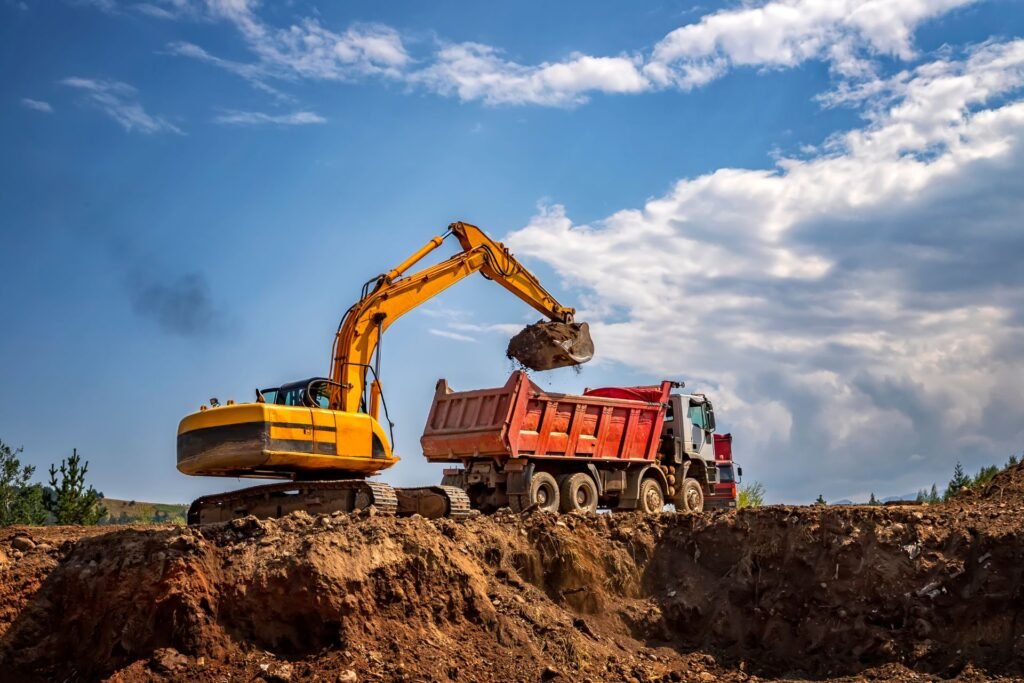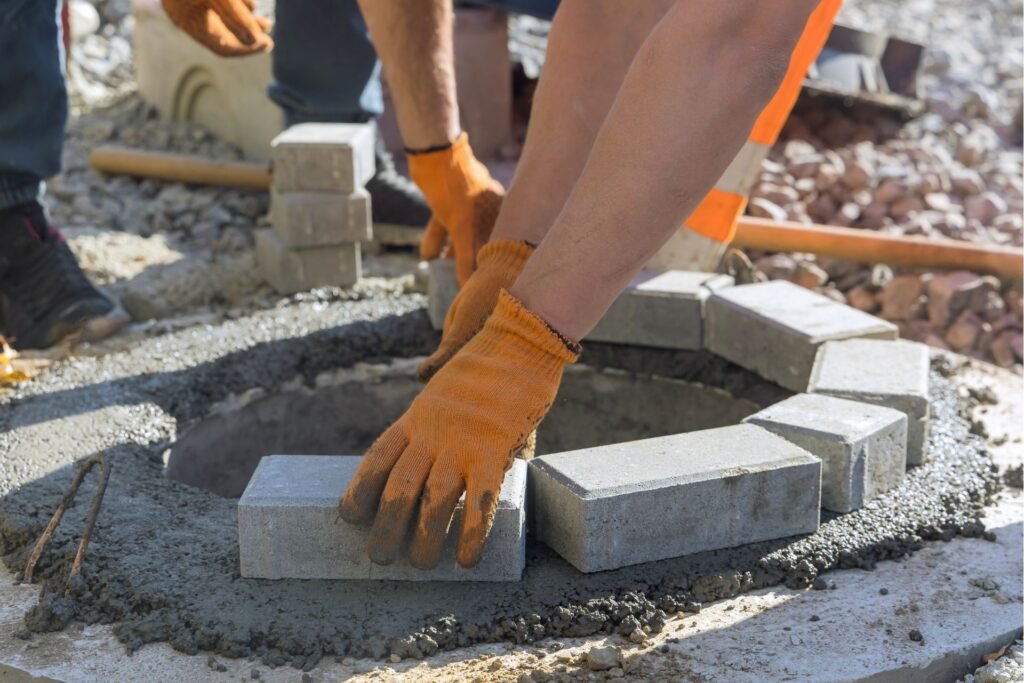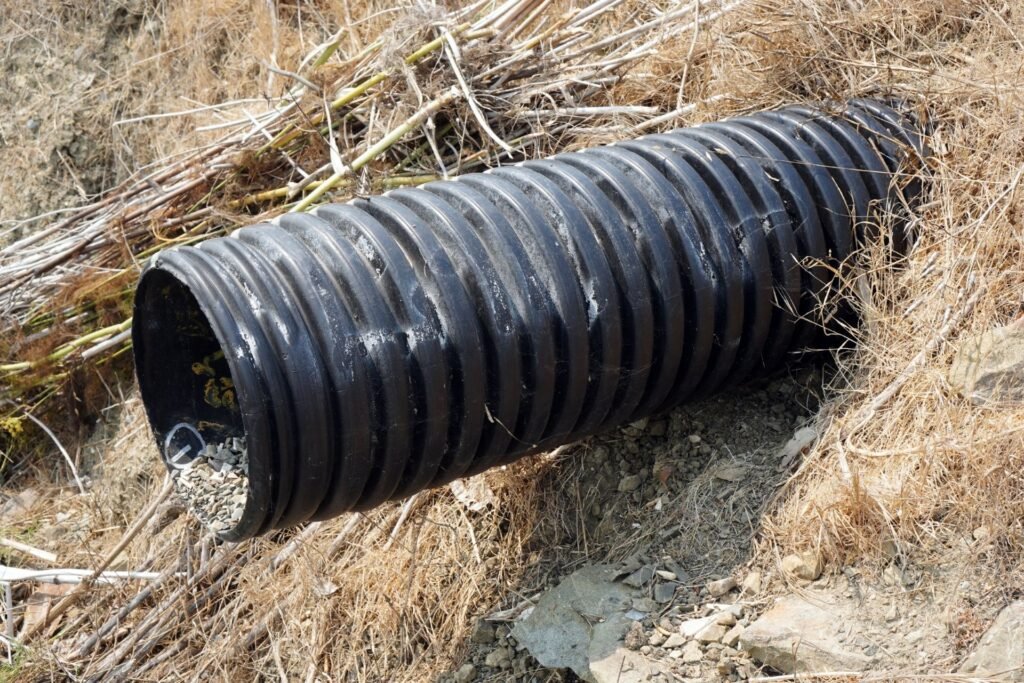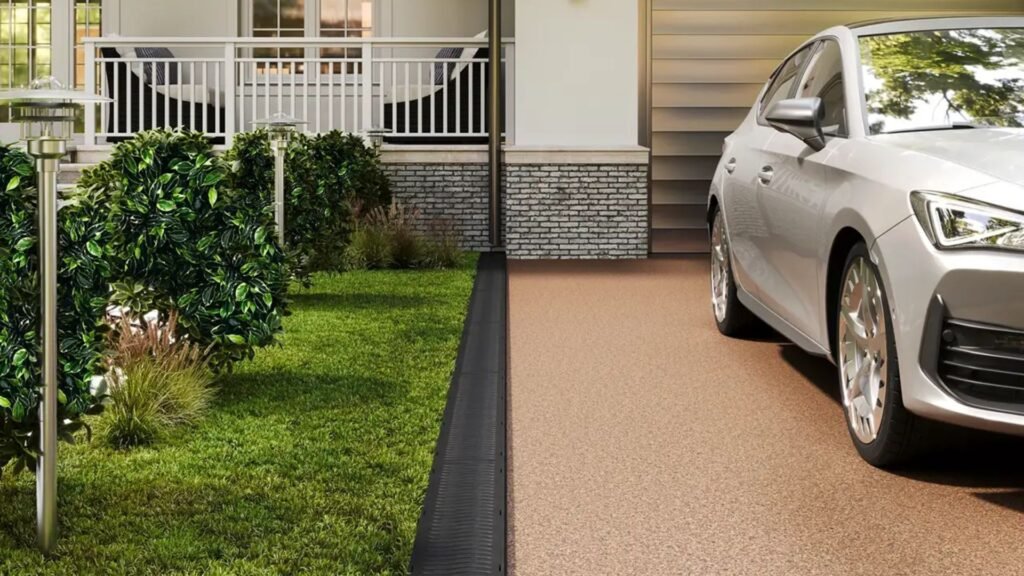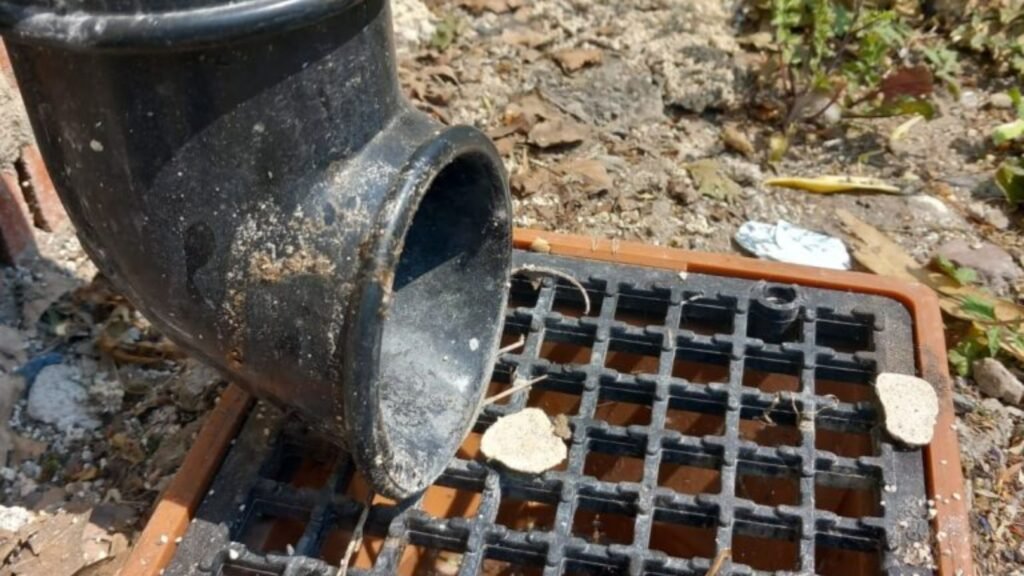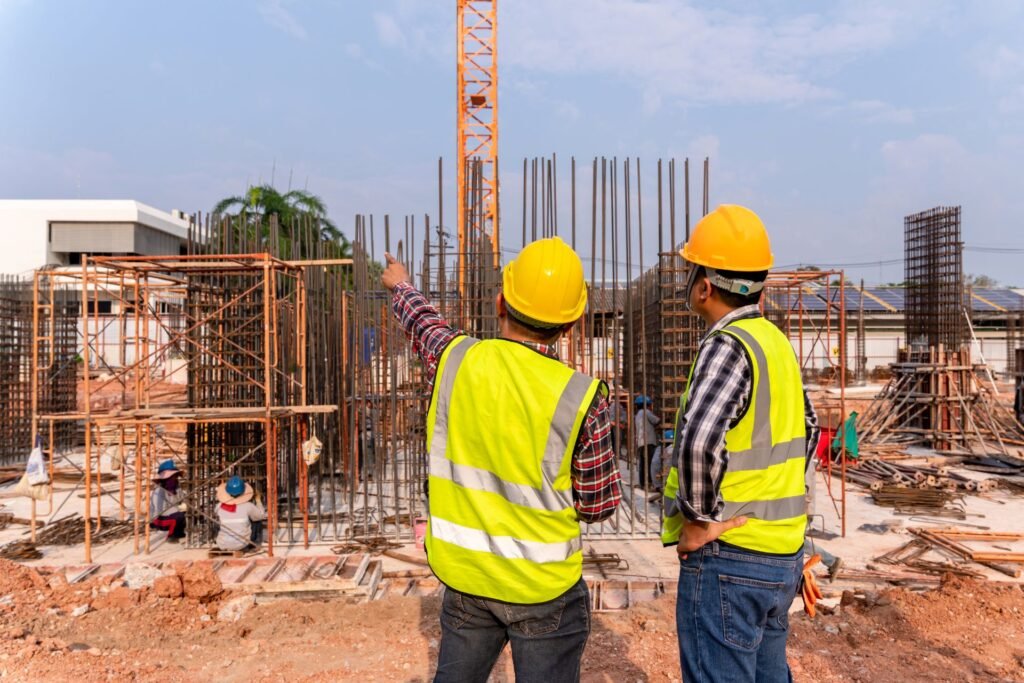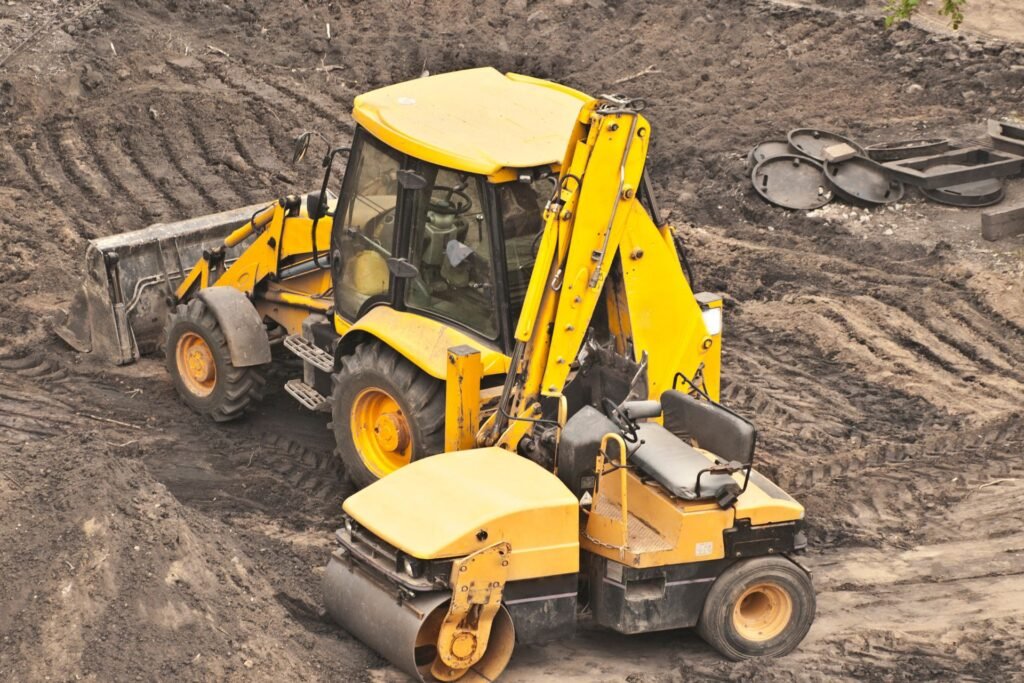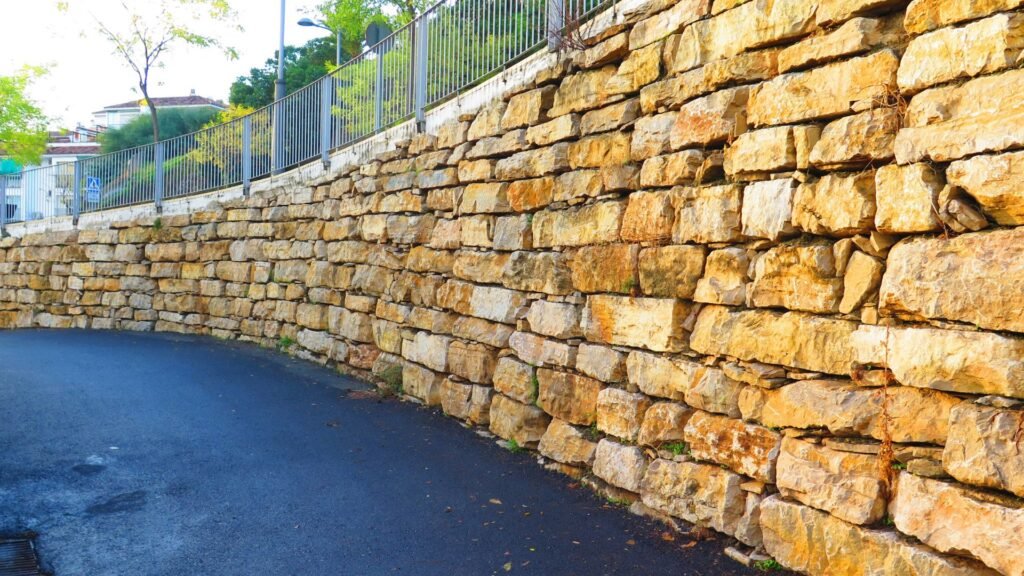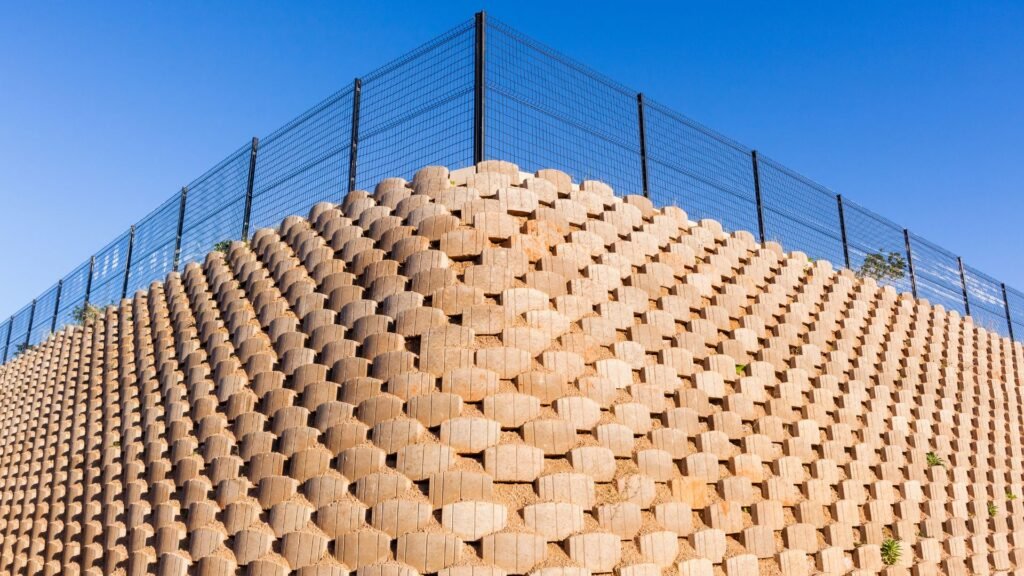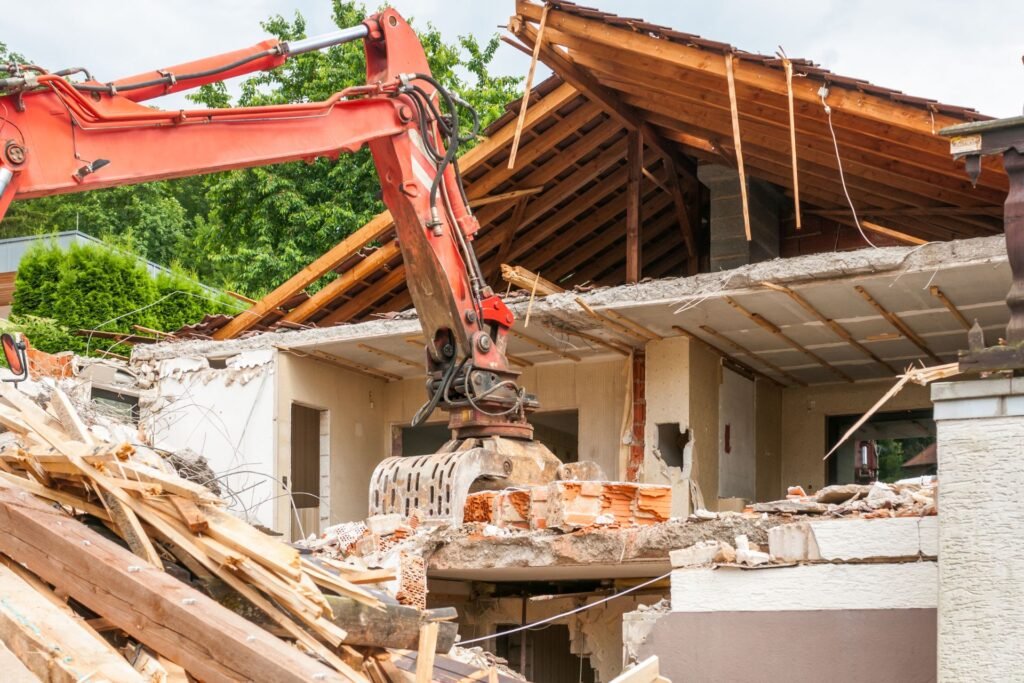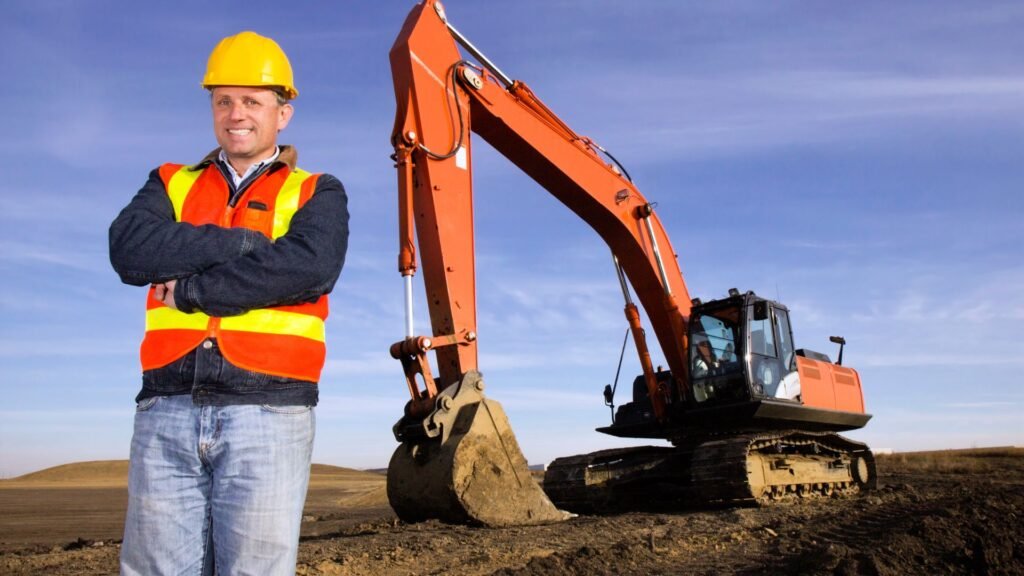Here is your comprehensive guide to knowing how much excavation services will cost in New Zealand! Understanding what to anticipate when it comes to excavation costs is essential for preparing a budget and carrying out a project successfully, whether you’re planning a large-scale commercial construction, a landscaping job, or a home remodel. We’ll look at all the variables that affect excavation costs in this piece, including project size, soil type, equipment requirements, and regional variances. In order to guarantee you receive the best value for your money, we’ll also offer helpful advice on how to obtain accurate quotations and steer clear of typical traps.
On average, the cost of excavation services in New Zealand ranges from NZD 500 to NZD 10,000 for residential projects, depending on factors like project size, soil type, and site accessibility. Larger commercial projects may incur higher costs. For the most accurate estimate, it’s essential to consult with professional contractors who can assess your specific needs.
Table of Contents
What Are Excavation Services?
Definition
In order to prepare a site for different kinds of projects, excavation services—which involve the act of excavating, removing, and transferring earth or other materials—are an essential part of the building and landscaping industries. These services are essential to many different projects, such as the construction of roads, drainage systems, swimming pools, and building foundations. In general, professional excavation will probably be needed for any project that calls for changing the earth’s surface in order to install underground utilities or establish a sturdy and level foundation.
Excavation is more than just moving soil; it involves a number of methods and specialized tools to guarantee accuracy and security. For example, when constructing a building, excavation crews will meticulously clear the site and excavate a foundation that will be strong enough to hold the weight of the structure. Excavation may be used in landscaping to shape the ground to make terraces or water features. Due to the complexity of these jobs, excavation services—whether for a small-scale residential project or a large-scale commercial development—are frequently customized to meet the unique needs of each project.
Importance
In almost all building and landscaping projects, excavation is an essential first phase that lays the foundation for the project’s overall success. Inadequate excavation can lead to structural problems like instability, poor drainage, and even collapse. This is why hiring professional excavation services is crucial since they have the knowledge and tools needed to do the task quickly and accurately.
By hiring experts for the excavation process, you can be confident that the project will adhere to safety requirements and local laws. Skilled excavation professionals are aware of the intricacies involved, from evaluating the state of the soil to controlling the dangers associated with the excavation process, such as the potential to run across utility lines or unanticipated groundwater. Their expertise and experience ensure that the project moves forward smoothly and on schedule by preventing expensive errors and delays.
In conclusion, excavation services involve more than just digging; they involve establishing the groundwork for successful landscaping and construction projects, both physically and figuratively. For a secure, stable, and long-lasting outcome, expert excavation services are essential, regardless of whether you’re building a new home, installing a drainage system, or putting a swimming pool.
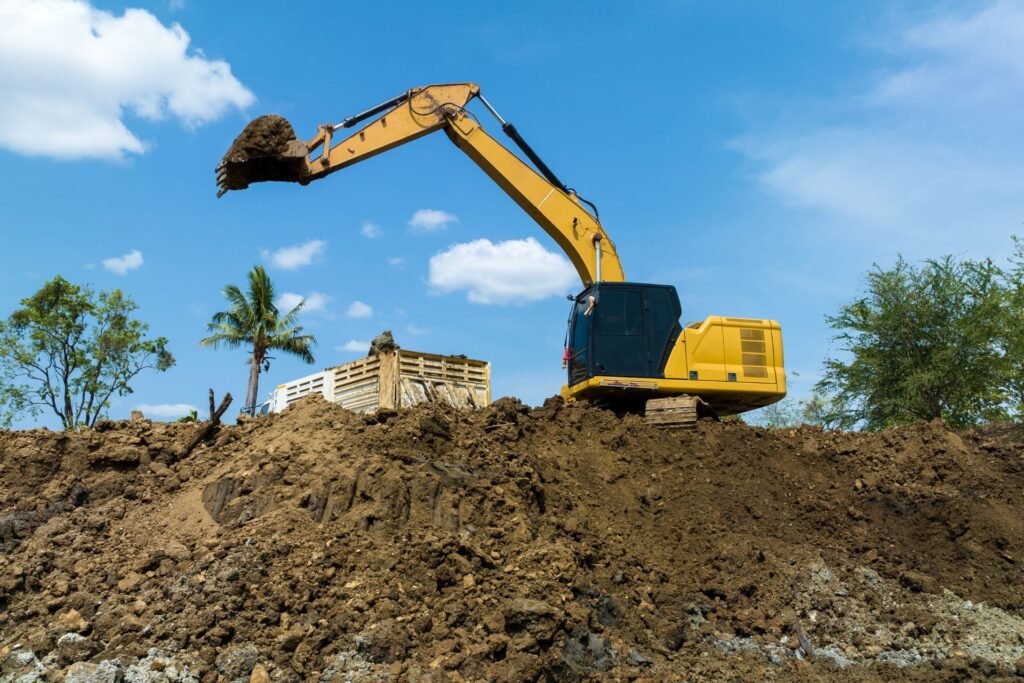
Factors That Influence Excavation Costs In NZ
The total cost of excavation projects in New Zealand is determined by a number of important elements. Whether you’re organizing a big commercial project or a small domestic one, knowing these components can help you budget more effectively and steer clear of unforeseen costs. The following is a thorough analysis of the main variables that can affect excavation costs in New Zealand:
1. Project Size and Scope
One of the main factors affecting excavation prices is the size and scope of your project. Naturally, the cost of preparing a residential driveway or other small-scale excavation will be lower than that of a huge commercial site excavation. The intricacy of the project is also important; bigger sites frequently call for more thorough planning, greater resources, and longer lead times. For instance, handling a variety of factors like utilities, foundations, and site leveling is just as important as digging when preparing a site for a new commercial building. Conversely, a simple residential driveway project usually entails less complexity, which translates into less expense.
2. Soil Type and Ground Conditions
The kind of soil and the ground conditions where the excavation is planned might have a big effect on the price. The soil types found in New Zealand are diverse, ranging from sand and clay to rock and gravel. Sand soils are easier to excavate but may need more stabilizing work. Clay soils, on the other hand, can be heavy and sticky, making them more difficult to move. On the other side, rocky soils can call for more expensive specialized machinery like rock breakers. Ground conditions can further add layers of difficulty and expense to the excavation process, such as water saturation levels, the existence of subterranean utilities, or past contamination.
3. Access to the Site
One other important issue that can affect expenses is how easily accessible the excavation site is. The cost of working on sites with simple access using standard machinery will be lower than that of sites with restricted access. For example, a steep slope or a tight driveway might make it difficult to move large machinery, necessitating the use of more tools or personnel to get around them. Logistics might become much more difficult in metropolitan locations due to space constraints. It may be necessary to close some roads or obtain special clearances, which would raise the entire cost. While rural areas may provide greater room, they may also provide difficulties due to factors like uneven terrain, necessitating the use of specialized vehicles or equipment for the transportation of machines and supplies.
4. Equipment and Labor Costs
The expense of excavation is increased by the need for specialized equipment and knowledgeable laborers. The specifications of the project will determine the kind of equipment required. Dump trucks, bulldozers, and diggers are examples of frequently used machinery. Hiring knowledgeable operators and this equipment can take a big chunk out of your cash. The length of the project will also affect expenses because larger projects require more personnel and equipment rental hours. It’s also crucial to keep in mind that different machines are required for different jobs. For instance, more difficult terrain may call for more powerful equipment, such as a bulldozer, which will cost more to hire than typical digging tools.
5. Permits and Regulations
Lastly, paying attention to local laws and getting the required permits may raise the cost of your excavation. It can take time and money to obtain different licenses, such building permits or resource consents, depending on the project’s location and requirements. Regulations may also specify specific safety or environmental precautions that must be taken throughout the excavation, such as sediment control or archaeological evaluations. Costs may rise even more if these rules are broken, as there may be penalties or delays in the project. Thus, before starting the excavation, make sure your project complies with all applicable legislation and account for the cost of permits.
In conclusion, while excavation costs in New Zealand can vary widely depending on these factors, understanding them can help you manage your budget more effectively. By considering the size and scope of your project, soil type and ground conditions, site accessibility, equipment and labor costs, and the need for permits and regulations, you can make informed decisions and avoid unexpected expenses.

Average Costs Of Excavation Services In New Zealand
When planning any construction project, understanding the costs associated with excavation is crucial. Excavation services form the foundation of many construction activities, from residential landscaping to large-scale commercial developments. In New Zealand, the cost of these services can vary significantly depending on the scope of the project, the region, and other influencing factors. Below, we break down the average costs you might expect for different types of excavation projects.
1. Residential Projects
For homeowners, excavation services are often needed for various projects such as driveway preparation, garden landscaping, or the installation of a swimming pool. On average, residential excavation costs in New Zealand can range from NZD 80 to NZD 150 per hour. However, these rates can fluctuate based on the complexity of the job, the type of machinery required, and the specific location of the project.
- Driveway Preparation: Preparing a driveway usually involves clearing the land, grading the surface, and sometimes removing old driveways. The cost for such projects typically falls between NZD 1,500 and NZD 4,000, depending on the length and width of the driveway.
- Garden Landscaping: Excavation for landscaping purposes might include tasks such as leveling ground, digging ponds, or preparing land for planting. These projects generally cost between NZD 1,000 and NZD 3,000, though this can vary with the size and design complexity of the garden.
- Swimming Pool Excavation: One of the more expensive residential excavation projects is for swimming pool installation. Costs can range from NZD 5,000 to NZD 15,000 or more, depending on the pool’s size, depth, and the challenges of the excavation site.
2. Commercial Projects
Commercial excavation projects are typically larger in scale and require more advanced machinery and skilled operators. These projects might include preparing building foundations, road construction, or leveling large sites for development.
- Building Foundations: The excavation needed for building foundations varies based on the size of the building and soil conditions. On average, you can expect to pay between NZD 10,000 and NZD 30,000 for foundation excavation in a commercial setting.
- Road Construction: Excavation costs for road construction are highly variable, depending on the length and complexity of the road. Generally, these projects can cost anywhere from NZD 20,000 to NZD 100,000 or more, particularly if the road passes through challenging terrain.
- Site Leveling: For large commercial developments, site leveling is a critical task that can significantly impact overall project costs. Depending on the site’s size and the amount of material that needs to be moved, this can range from NZD 15,000 to NZD 50,000.
3. Regional Variations
In New Zealand, the cost of excavation services is not uniform across all regions. Several factors contribute to regional cost differences:
- Demand: In areas with higher construction activity, such as Hawkes Bay or Wellington, the demand for excavation services is higher, which can drive up prices. Conversely, in less densely populated areas, costs might be lower due to reduced demand.
- Local Soil Conditions: The type of soil can greatly affect excavation costs. For example, rocky or clay-heavy soils are more difficult and time-consuming to excavate than sandy or loamy soils, leading to higher costs in regions with challenging ground conditions.
- Availability of Services: In more remote areas, the availability of specialized excavation machinery and skilled operators can be limited. This scarcity can result in higher transportation costs for equipment and labor, further increasing the overall price.
Understanding these factors can help you better anticipate the costs associated with your excavation project and budget accordingly. By considering the type of project, the scale of work required, and regional cost variations, you can more accurately estimate the financial commitment involved in your construction plans in New Zealand.
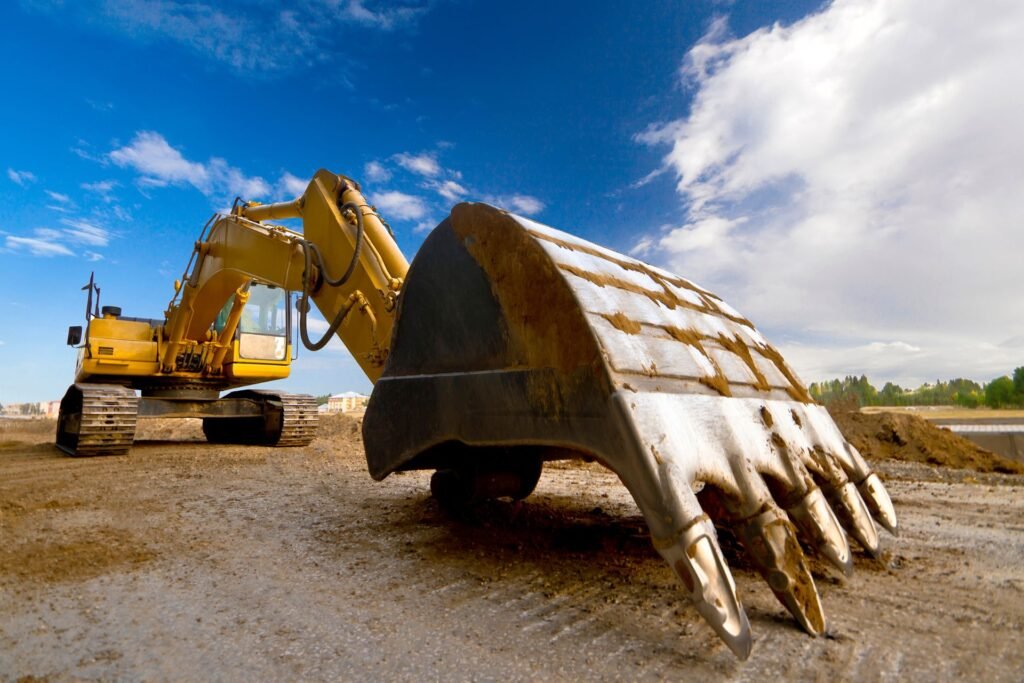
How To Get Accurate Excavation Quotes
When you’re planning an excavation project, getting accurate quotes is crucial to ensure the project stays within budget and meets your expectations. Here’s how to achieve that:
1. Provide a Detailed Project Brief
The first step to obtaining an accurate excavation quote is to prepare a comprehensive project brief. This document should outline every aspect of your project, leaving no room for guesswork. A detailed project brief allows contractors to understand exactly what is required, which leads to more precise quotes.
Include specifics such as the scope of the work—what exactly needs to be excavated and to what depth. Mention any particular materials that will be needed, such as gravel, sand, or special backfill requirements. Don’t forget to specify the timeline: when you expect the work to start and finish. The more details you provide, the more accurate the quotes will be, helping you avoid surprise costs later on.
2. Arrange Site Visits
While a detailed project brief is essential, nothing beats a contractor’s firsthand assessment of the site. A site visit allows the contractor to see the unique conditions of your property, such as access issues, soil type, or potential obstacles like trees or existing structures that could impact the excavation.
Encourage contractors to visit the site before they provide a quote. This allows them to give a more informed and accurate estimate, reducing the likelihood of unexpected costs once the project is underway. It also gives you an opportunity to discuss your project in person, ensuring that the contractor fully understands your expectations.
3. Compare Multiple Quotes
Once you’ve gathered detailed quotes from a few contractors, take the time to compare them. Don’t just look at the bottom line; consider what each quote includes. Are all the necessary services, materials, and contingencies covered? Is the contractor’s timeline realistic, and do they have a solid reputation for delivering on their promises?
By comparing multiple quotes, you can ensure that you’re getting competitive pricing without sacrificing quality. It also gives you leverage to negotiate better terms if necessary, ultimately helping you get the best value for your investment.
In conclusion, getting accurate excavation quotes requires a bit of legwork upfront—preparing a detailed brief, arranging site visits, and comparing offers from multiple contractors. However, these steps are well worth the effort, helping you avoid unexpected costs and ensuring your project runs smoothly from start to finish.

Tips For Reducing Excavation Costs
Excavation is a crucial part of many construction projects, but it can also be a significant expense. Fortunately, there are several strategies you can employ to keep these costs under control. By following these practical tips, you can maximize efficiency and minimize unnecessary expenses, ensuring your project stays within budget.
1. Planning and Preparation
One of the most effective ways to reduce excavation costs is through meticulous planning and preparation. Before breaking ground, make sure you have a detailed plan in place. This plan should include a clear understanding of the excavation requirements, such as the depth and scope of the digging.
Start by thoroughly assessing the site. Identify any potential obstacles like underground utilities, large rocks, or tree roots that could complicate the excavation process. Clearing the site beforehand can significantly speed up the work and reduce the likelihood of costly delays.
Additionally, consider the timing of your excavation. Scheduling the work during off-peak times, when demand for excavation services is lower, can lead to substantial savings. Contractors may offer lower rates during these periods, allowing you to negotiate better deals. Proper planning and preparation can prevent unexpected issues, making the excavation process smoother, faster, and more cost-effective.
2. Reusing Materials
Another smart way to cut excavation costs is by reusing materials extracted from the site. Instead of disposing of soil, gravel, or other materials, consider how they might be repurposed in your project. For example, excavated soil can be used as backfill, reducing the need to purchase additional materials. Gravel or rocks can be incorporated into landscaping or used to create drainage layers, further minimizing costs.
Reusing materials not only helps you save money but also reduces the environmental impact of your project. By minimizing waste and making the most of the resources available on-site, you contribute to a more sustainable construction process. This approach is particularly beneficial for larger projects where the volume of excavated materials can be significant.
3. DIY vs. Professional Services
Deciding between doing the excavation work yourself or hiring professionals can have a big impact on your overall costs. For small-scale projects, such as digging a garden pond or preparing a site for a shed, a DIY approach might seem tempting. It can save you the labor costs associated with professional services, and with the right tools and knowledge, you might be able to handle the work on your own.
However, it’s important to weigh the pros and cons carefully. While DIY excavation might save money upfront, it can lead to higher costs in the long run if mistakes are made. Improper excavation can result in issues like uneven ground, poor drainage, or even damage to nearby structures. These problems can be expensive to fix and may delay your project.
On the other hand, hiring professionals ensures that the job is done correctly and efficiently. Experienced contractors have the expertise and equipment to handle excavation safely and effectively. They can also help you avoid costly errors and unexpected complications. For larger or more complex projects, the investment in professional services is often worth the peace of mind and potential cost savings in the long run.
In conclusion, reducing excavation costs requires a combination of smart planning, resourcefulness, and careful decision-making. By preparing thoroughly, reusing materials, and choosing the right approach—whether DIY or professional—you can keep your project on track and within budget. These tips not only help you save money but also contribute to a more efficient and sustainable construction process.
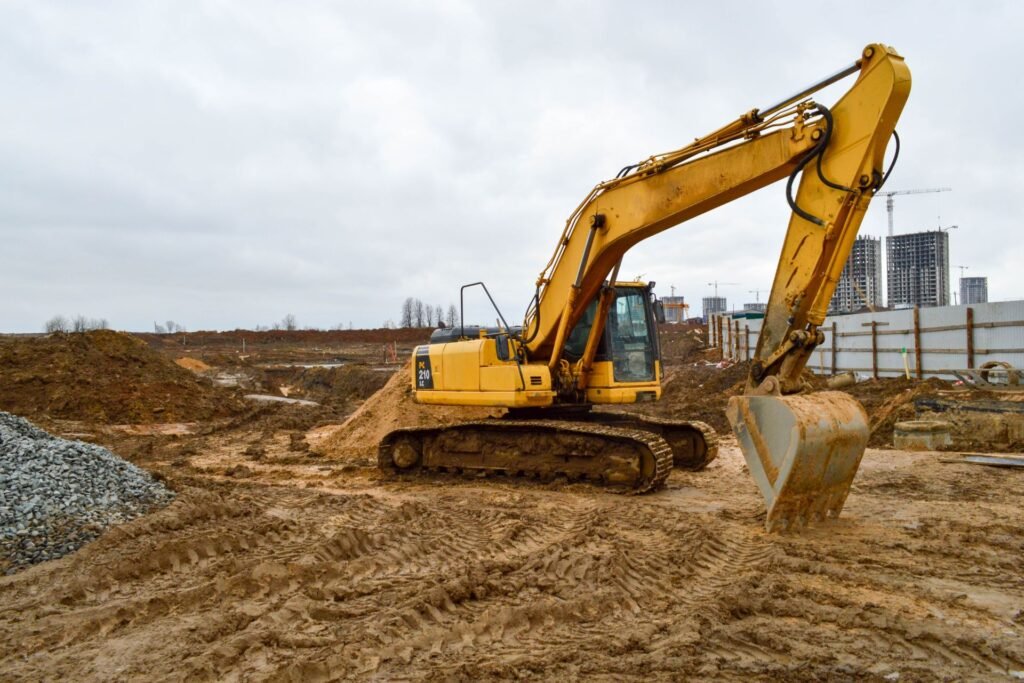
Common Pitfalls To Avoid
When embarking on any construction or renovation project, there are several potential pitfalls that can jeopardize the success of your endeavor. Here are some of the most common mistakes to be aware of, and how you can steer clear of them.
1. Ignoring Ground Conditions
One of the most overlooked aspects of a construction project is the ground conditions on which the structure will be built. Failing to properly assess and address challenging ground conditions can lead to significant issues down the line. For example, soil with poor load-bearing capacity can cause foundation problems, resulting in costly repairs or even structural failures. It’s essential to conduct thorough soil tests and geotechnical surveys before breaking ground. By understanding the ground conditions upfront, you can mitigate risks, avoid unexpected costs, and ensure the longevity and stability of your project.
2. Overlooking Permits
Securing the necessary permits is a critical step in any construction project. However, it’s not uncommon for this step to be overlooked or delayed, which can lead to severe consequences. Without the appropriate permits, you could face hefty fines, legal complications, or even be forced to halt construction altogether. Additionally, navigating the permitting process can be time-consuming, so it’s important to account for this in your project timeline. By ensuring that all permits are in place before starting work, you can avoid delays and keep your project on track.
3. Choosing the Cheapest Option
While it might be tempting to opt for the lowest bid or the cheapest materials to save on upfront costs, this approach can often backfire. The cheapest option isn’t always the best, especially when it comes to quality and long-term value. Low-cost materials and labor can result in poor workmanship, frequent repairs, and higher maintenance costs over time. It’s crucial to consider the overall value, including durability and the reputation of the contractor, when making decisions. Investing a little more initially can save you a lot of trouble and expense in the future, ensuring that your project is built to last.
In conclusion, by paying attention to these common pitfalls—ground conditions, permits, and the allure of the cheapest option—you can safeguard your project from unnecessary complications. Prioritizing quality, compliance, and thorough planning will not only save you money but also help you achieve a successful and enduring result.
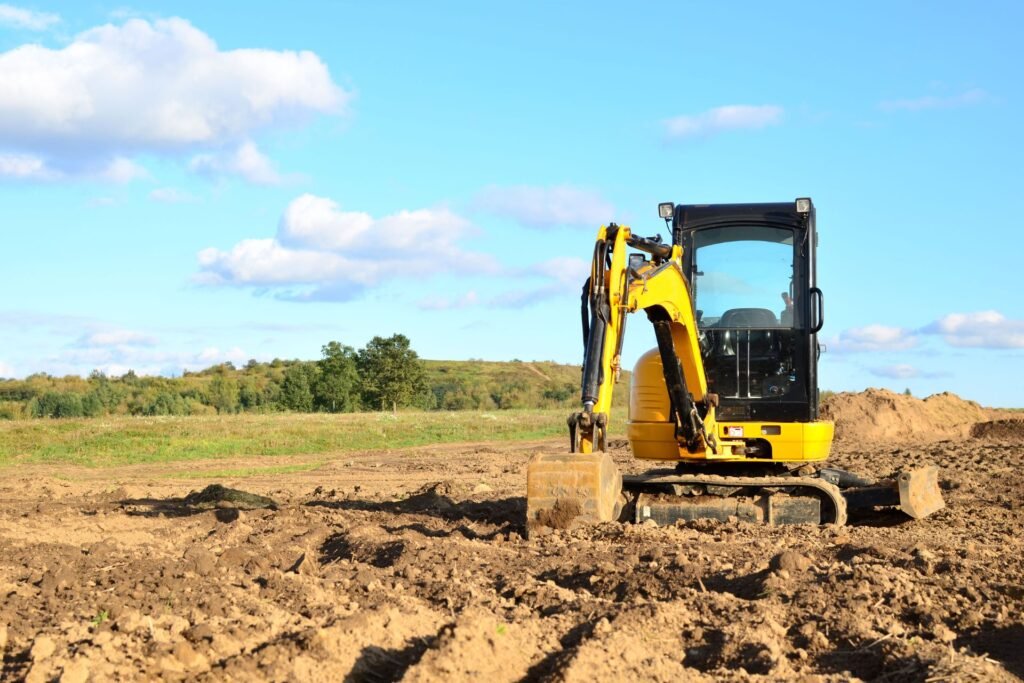
Choosing The Right Excavation Contractor
Selecting the right excavation contractor is a critical step in ensuring the success of your construction project. The process involves more than just picking a company at random; it requires careful consideration of various factors to guarantee that your project is handled by professionals who deliver quality results. Here are three key aspects to focus on when making your decision:
1. Experience and Reputation
When it comes to excavation work, experience truly matters. A contractor with years of hands-on experience has likely encountered and overcome a wide range of challenges, making them more equipped to handle any complexities that might arise during your project. Moreover, an established contractor with a solid reputation is a strong indicator of reliability and high-quality work.
To gauge a contractor’s reputation, check online reviews and testimonials from previous clients. Look for consistent positive feedback and note how the contractor responded to any negative comments. A contractor with a history of successful projects and satisfied clients is more likely to deliver the results you expect.
2. Insurance and Licensing
Before hiring an excavation contractor, it’s essential to verify that they have the necessary insurance and licenses to operate legally in New Zealand. Proper licensing ensures that the contractor complies with local regulations and standards, which is crucial for the safety and legality of your project. Insurance, on the other hand, protects you from liability in case of accidents or damages during the excavation process.
Ask the contractor to provide proof of both their license and insurance. This not only safeguards your project but also reflects the contractor’s professionalism and commitment to operating within the law.
3. Communication and Transparency
Effective communication is the backbone of any successful project. When choosing an excavation contractor, prioritize those who are open and transparent about their processes, costs, and timelines. A contractor who communicates clearly from the outset will help prevent misunderstandings and ensure that both parties are on the same page throughout the project.
Transparency about costs is particularly important. A trustworthy contractor will provide a detailed, upfront estimate and be clear about any potential additional expenses. They should also keep you informed about the project’s progress and any unforeseen issues that may arise. This level of openness builds trust and helps avoid surprises down the line.
By focusing on these three key factors—experience and reputation, insurance and licensing, and communication and transparency—you can confidently choose an excavation contractor who will deliver high-quality work and ensure the smooth progression of your project.
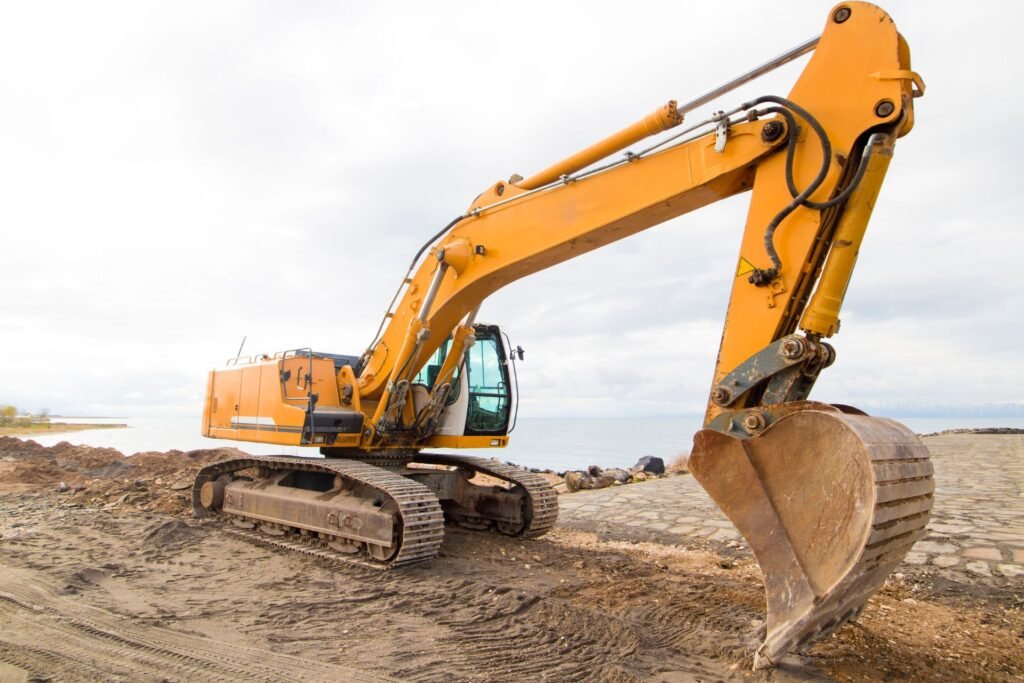
FAQs: About Cost Of Excavation Services NZ
What factors influence the cost of excavation services in New Zealand?
The cost of excavation services in New Zealand is influenced by several factors, including the size and scope of the project, the type of soil and ground conditions, the accessibility of the site, the equipment and labor required, and any necessary permits and regulations.
How much does a typical residential excavation project cost in NZ?
On average, residential excavation projects in New Zealand can cost anywhere from NZD 500 to NZD 10,000, depending on the complexity and scale of the work involved, as well as regional pricing differences.
Are there any regional variations in excavation costs across New Zealand?
Yes, excavation costs can vary by region due to factors like local demand, soil conditions, and the availability of excavation services. For example, prices may be higher in urban areas with high demand or in regions with particularly challenging terrain.
How do soil type and ground conditions affect excavation costs?
Soil type and ground conditions significantly impact excavation costs. Soft or loose soils are easier and cheaper to excavate, while hard, rocky, or clay-rich soils require more time and specialized equipment, leading to higher costs.
What should I include in my project brief when requesting excavation quotes?
When requesting quotes, it’s important to include a detailed project brief that outlines the scope of work, site access details, soil type, any existing structures, and your project timeline. This helps contractors provide more accurate and comprehensive quotes.
How can I reduce the cost of my excavation project?
To reduce costs, you can plan and prepare your site in advance, consider reusing excavated materials, and compare multiple quotes from different contractors. Additionally, scheduling your project during off-peak times may result in lower prices.
Is it possible to do small excavation projects myself, or should I hire professionals?
While it’s possible to handle very small excavation tasks yourself, it’s generally recommended to hire professionals for anything more substantial. Professionals have the necessary equipment and expertise to complete the job safely and efficiently, reducing the risk of costly mistakes.
What are the risks of choosing the cheapest excavation contractor?
Choosing the cheapest contractor may lead to subpar work, delays, and unexpected additional costs. It’s important to consider the contractor’s experience, reputation, and the quality of their work rather than just the price.
Do I need permits for excavation work in New Zealand?
Permits are often required for excavation work, especially if the project involves significant changes to the landscape, impacts drainage, or is part of a larger construction project. Failing to obtain the necessary permits can result in fines or project delays.
How do I choose the right excavation contractor in NZ?
To choose the right contractor, look for those with experience, positive reviews, and the necessary insurance and licenses. It’s also important to communicate clearly with your contractor about your expectations and ensure they provide transparent pricing and timelines.
Conclusion
In conclusion, when planning an excavation project in New Zealand, it’s crucial to understand the key factors that influence the cost, such as site accessibility, soil type, and project complexity. Careful planning and selecting the right contractor can significantly impact the success and cost-effectiveness of your project. By investing time in thorough research and detailed preparation, you can avoid unexpected expenses and achieve the desired results. If you’re ready to take the next step, don’t hesitate to reach out for a personalized quote or professional advice tailored to your specific excavation needs.
This blog post was brought to you and referenced by: https://builderconnect.co.nz/blog/ultimate-guide-to-earthworks-costs-in-nz/
About the Author:
Mike Veail is a recognized digital marketing expert with over 6 years of experience in helping tradespeople and small businesses thrive online. A former quantity surveyor, Mike combines deep industry knowledge with hands-on expertise in SEO and Google Ads. His marketing strategies are tailored to the specific needs of the trades sector, helping businesses increase visibility and generate more leads through proven, ethical methods.
Mike has successfully partnered with numerous companies, establishing a track record of delivering measurable results. His work has been featured across various platforms that showcase his expertise in lead generation and online marketing for the trades sector.
Learn more about Mike's experience and services at https://theleadguy.online or follow him on social media:

